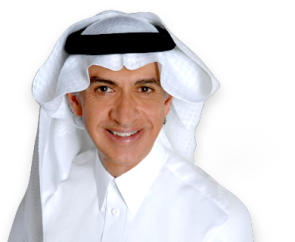ABOUT THE AUTHOR
Global visionary—Whether leading a successful business or setting a course for academic pursuits, Sheikh Hussein A. Al-Banawi is a man of vision. His vision, he explained, was to pioneer a positive image and connection to the West. “And I hope I did a fair job,” Al-Banawi said. “That’s something my successors can determine… those who came after me as students from the Arab world.”
After graduation, Al-Banawi returned to Jeddah, Saudi Arabia, and his new role first as division president, then as president and CEO into the present time as Chairman and CEO of The Industrial Group, a market leader in specialty chemicals, packaging, and food flavors in the Broader MENA (Middle East and Africa) region since 1957, bringing with him new concepts for Middle Eastern business practices. He has been at the helm of the family business ever since, successfully guiding The Industrial Group through an era of globalization and massive changes in technology. Creating a performance-driven corporate culture that focuses on customer satisfaction while enhancing shareowner value has been the key to keeping the business thriving in the midst of change, Al-Banawi has found.
As he looks to the future, Al-Banawi sees two challenges facing the Arab business world as it continues to seek growth opportunities. “One is the ability for us to continue to provide the right education for future generations, because business is first and foremost about people,” he says. The second is being in an area that historically has had its fair share of political turmoil. The remedy to this, he believes, is continuing to engage internationally.
Al-Banawi did his undergraduate studies at Franklin College in Lugano, Switzerland, and holds a Masters in Business Administration from Rollins College. The melding of his business acumen and interest in academia led Hussein A. Al-Banawi to establish a Chair in Islamic Economics, Finance, and Management at Rice University, his younger brother’s alma mater. He sees the chair as a way of showing gratitude to the country that gave him the opportunity for higher education as well as a means for American and International students to examine past contributions of the Arab civilization to the science of economics in order to help solve today’s complex economic issues. “A lot of dust has settled on this science over many years, but maybe the world can take a look at it again, in today’s terms, and perhaps adjust for the future,” Al-Banawi says. “Over the years, academia has proved to be the right home for such initiatives.” He hopes to help launch future programs that will bring MBA students into closer dialogue with business executives internationally.
Commenting on the importance of maintaining a balance between fast-paced business enterprise and the slower-paced cultural change through academia, Al-Banawi says, “As human beings, it is God’s gift that we have a pair of eyes. One has to be on today, and one has to be on tomorrow.”
Hussein A. Al-Banawi is a member of the Board of Trustees, Vice Chairman of the Executive Committee, and Chairman of the Investment Committee of the World Waqf Foundation of the Islamic Development Bank, and a founding member of The John D. Gerhart Center for Philanthropy and Civic Engagement at The American University in Cairo.
The Unknown Leader – ISBN# 978-0-74-94-6572-8
Published by Kogan Page, 2012
